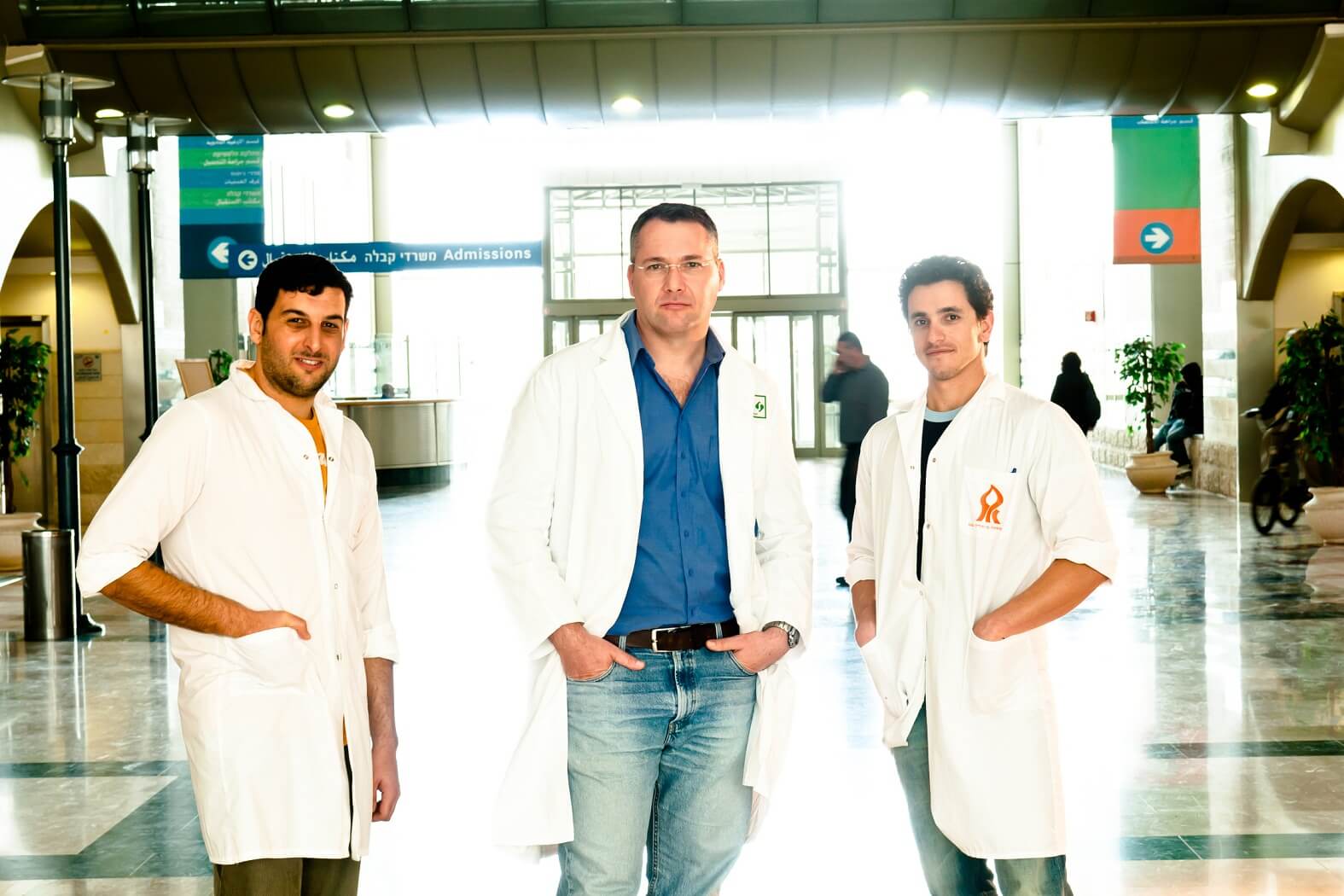The treatment proposed by researchers from Ben-Gurion University of the Negev results in interesting microscopic changes within the implants that indicate a positive effect of the drug combination

A group of researchers under the direction of Dr. Eli Lewis from Ben-Gurion University of the Negev succeeded in recent years in establishing a method of receiving pancreatic islet transplants between members of the same sex, by using a natural protein found in the blood called alpha-1 antitrypsin (alpha-1 for short). It is an anti-inflammatory protein whose level increases during an illness, such as the flu.
Today, the protein exists as a safe drug for use given to a rare population of patients who suffer from protein deficiency due to a genetic background. Implants of this type bring blood sugar balance impressively. However, they require a high number of donors which is not available for all diabetics. To overcome this deficiency, pig pancreatic islets have recently been approved for human transplantation. However, in this situation, the immune system of the transplanted person reacts in an extremely increased manner, a significant obstacle to the success of the transplant team.
In an article published this month in the PLOS ONE newspaper, Dr. Eli Lewis' group demonstrated that the use of alpha-1 alone does not result in the uptake of pancreatic islets in a transplant model between different species, even when the dose and duration of treatment are increased. The researchers found that the treatment results in interesting microscopic changes within the implants that indicate a positive effect of the drug. From this came the idea that a combination of treatments is needed to overcome the immune system and lead to the absorption of the implant. The researchers combined alpha-1 with temporary elimination of T cells (also called ATG). Temporary elimination of these cells is carried out by injecting antibodies which cause a temporary loss of T cells and their spontaneous return after about two weeks. The researchers found that while the treatment with antibodies alone results in a limited delay in the time of rejection of the grafts, the combination of the treatment with alpha-1 results in the absorption of the grafts.
This integrated therapeutic approach is unique in several ways. For example, it is known that it is possible to influence the cells of the immune system after their return (repopulation). In the present case this results in the desired absorption of pancreatic islets. In addition, the synergism between alpha-1, which is known to be anti-inflammatory, and ATG, which affects only T cells, reveals to researchers an interesting focus in the unknown mechanism of action of alpha-1. Furthermore, the approach of combining these safe treatments may in the near future serve as an accompanying treatment for pancreatic islet transplants between pigs and humans, a procedure that is currently being tested in several clinical trials around the world.
As we know, diabetics are currently treated with daily injections of insulin. This treatment, which has existed for decades, still does not bring stability to sugar levels. In fact, for most of the day the blood sugar levels in these patients are dangerously high. Insulin is produced in the islets of the pancreas. During the disease, these organs are exposed to damage from the immune system. In the last decade, human pancreatic islets are surgically transplanted into diabetic patients, in a relatively simple and non-invasive method. This procedure results in stability in sugar levels without the need for insulin injections. But, this treatment ends in most cases with rejection of the implant. Another disadvantage of this treatment is the lack of organ donors.
One of the solutions to this shortage is the transplantation of an organ from a non-human source, such as a pig. Indeed, regulatory authorities (eg FDA) have recently approved clinical trials of pig pancreatic islet transplants in humans. But now we are faced with an even more difficult problem, and that is how to avoid an even more aggressive rejection of the graft, that is, the immune rejection of one species against another species of animal. Hence the great importance of the research of Dr. Eli Lewis and his team.

One response
Dear Dr. Eli Lewis!
I keep my fingers crossed for you with all my heart and pray that you will succeed and that thanks to you our children will recover from this cursed and scary disease!!!